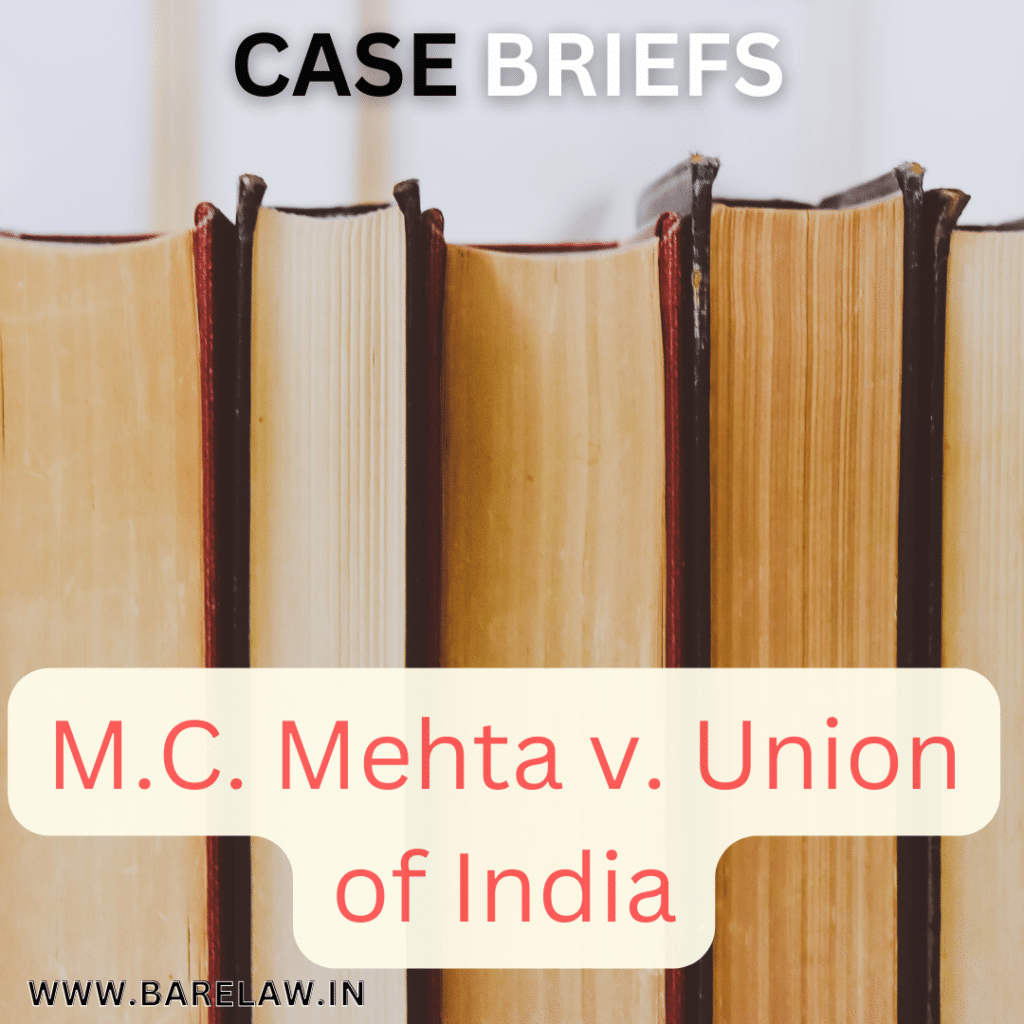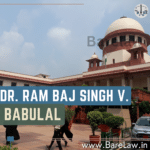
The case of MC Mehta v Union of India, AIR 1987 SC 1086 is a landmark judgment in India’s legal history. In 1984, a gas leak from a plant operated by Shriram Foods and Fertilizers Industries in Bhopal, India, caused thousands of deaths and injuries. M.C. Mehta, an advocate, filed a public interest litigation (PIL) seeking relief for the victims and compensation for the damages caused.
Case name: M.C. Mehta v. Union of India
Citation: AIR 1987 SC 1086
Parties Involved:
Petitioner: M.C. Mehta
Respondent: Union of India
Facts:
In 1985, there was a leakage of oleum gas from a plant operated by Shriram Foods and Fertilizers Industries in Bhopal, India. The gas leak resulted in the death of thousands of people and caused serious injuries to thousands of others. M.C. Mehta, an advocate, filed a public interest litigation (PIL) in the Supreme Court of India seeking relief for the victims and compensation for the damages caused.
Issues:
Whether the right to life under Article 21 of the Indian Constitution includes the right to a clean and healthy environment.
Whether the owners of the plant should be held liable for the damage caused by the gas leak.
Arguments:
The petitioner argued that the right to life under Article 21 of the Indian Constitution includes the right to a clean and healthy environment. The respondent argued that the owners of the plant should be held liable for the damage caused by the gas leak.
Decision:
The Supreme Court held that the right to life under Article 21 of the Indian Constitution includes the right to a clean and healthy environment. The court also held that the owners of the plant should be held liable for the damage caused by the gas leak. The court ordered the owners to pay compensation to the victims and directed the government to take necessary steps to prevent such incidents in the future.
Significance:
The M.C. Mehta case is a landmark judgment in India as it recognized the right to a clean and healthy environment as a fundamental right under the Constitution. The case also established the principle of strict liability, which means that a person or organization can be held liable for harm caused even if they were not negligent. This case paved the way for several other environmental PILs in India and emphasized the need for environmental protection and conservation.
Summary:
The Supreme Court of India made the following decisions in the case of M.C. Mehta v. Union of India, AIR 1987 SC 1086:
The right to life under Article 21 of the Indian Constitution includes the right to a clean and healthy environment.
The owners of the plant, Shriram Foods and Fertilizers Industries, should be held liable for the damage caused by the gas leak.
The owners of the plant were directed to pay compensation to the victims of the gas leak.
The government was directed to take necessary steps to prevent such incidents in the future, including implementing safety measures and regulations to ensure that industries do not cause harm to the environment or to public health.
The court’s decision in this case established the principle of strict liability, which means that a person or organization can be held liable for harm caused even if they were not negligent. This decision has been significant in shaping India’s environmental law and policy and has led to greater emphasis on environmental protection and conservation.





